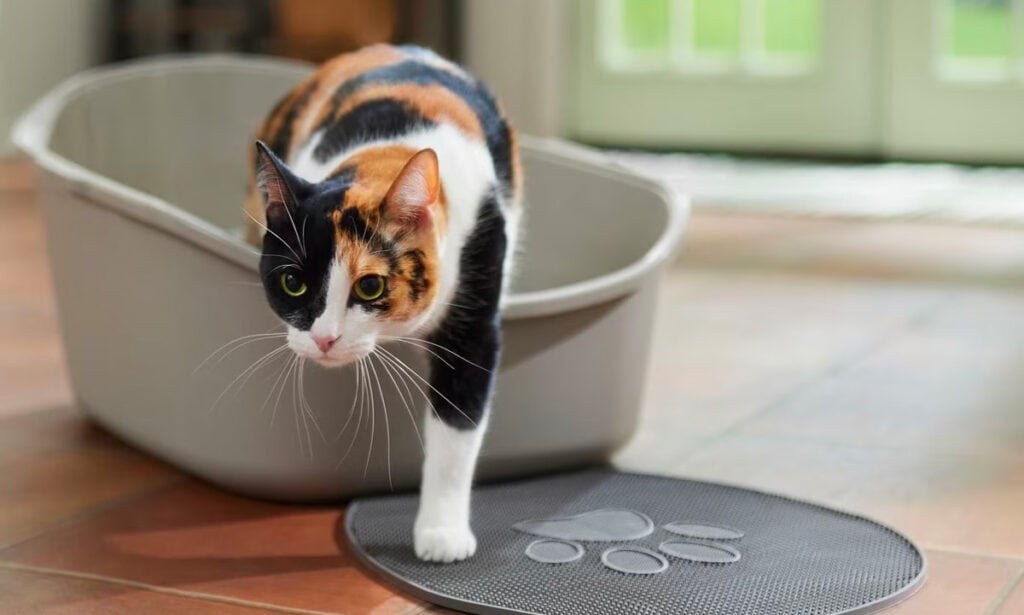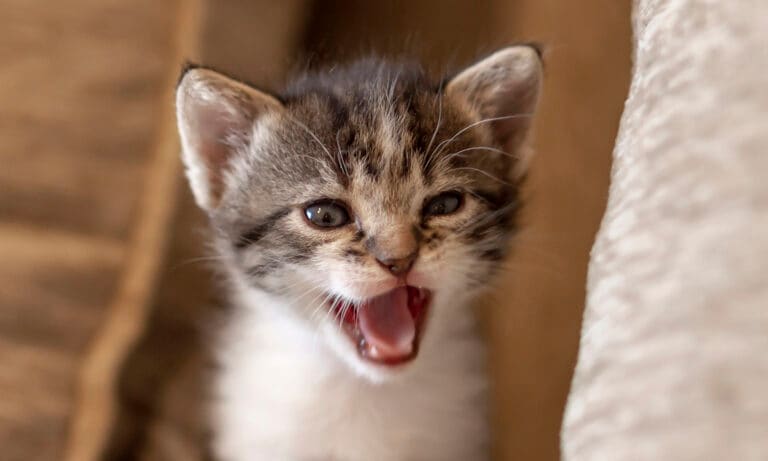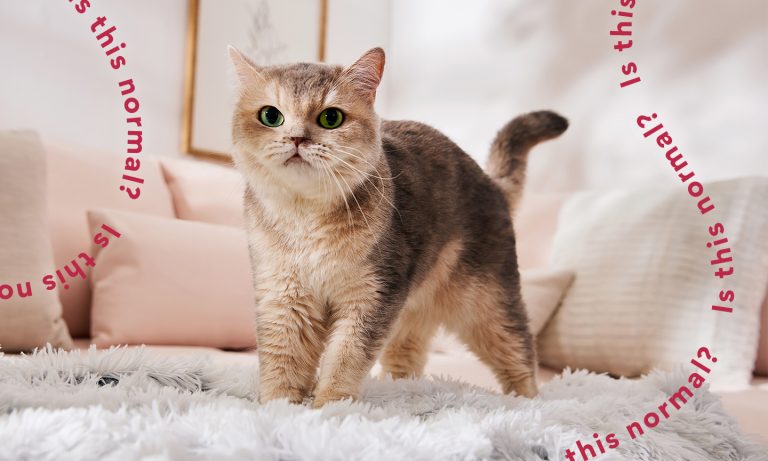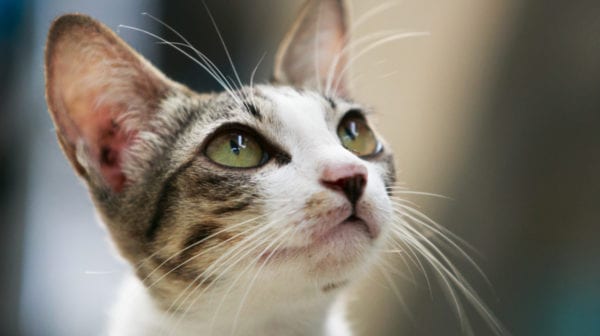Cats are masters of disguise. They’re not quick to show sickness or weakness, and can be really good at hiding when they’re not happy. But their bathroom habits are one of the easiest ways to identify if there’s an issue. If you notice your cat pooping outside the litter box, they’re trying to tell you something.
In some cases, this behavior can signal a medical problem. In others, it’s a sign that your cat just isn’t happy with the current litter box situation. We spoke to an expert to uncover common reasons for this abnormal behavior, as well as a handful of things you can do to stop your cat from pooping outside the litter box.
7 Reasons Your Cat Is Pooping Outside the Litter Box
1. Underlying Medical Issues
The most common cause of pooping outside the litter box is an underlying health issue that needs to be evaluated by a veterinarian, says Joey Lusvardi, an IAABC-certified cat behavior consultant and founder of Class Act Cats based in Minneapolis.
"This is especially true if there is any change to the shape or consistency of the stool," he adds.
Constipation is one such health problem. Your cat may start trying to poop in the litter box, but nothing comes out until they exit and start to walk away.
If your cat poops outside the litter box for more than a day or two, Lusvardi recommends taking them to the vet to be evaluated for health concerns.
2. Litter Box Problems
If medical conditions have been ruled out, you’re likely dealing with behavioral or environmental causes. Cats can be pretty finicky, and if they’re pooping outside the litter box, they may be trying to show you their displeasure with the litter and/or litter box itself. For example, the litter box may be too small or too hard to get into.
"Longer-haired cats and senior cats typically prefer low-entry boxes," Lusvardi says.
For seniors, it's due to potential mobility issues, and with long-haired cats their fur can rub against the litter box entrance, which is uncomfortable for them.
Some cats even have preferences for certain materials and textures, Lusvardi says, adding that "if those preferences aren't met, they're going to avoid the box."
3. Litter Box Location Woes
It’s possible the location of the litter box is tripping your cat up, too, especially if you recently changed it.
"If you have your litter box in a deep, dark corner of a basement, your cat isn't going to want to go on an epic journey across your home each time they have to poop," says Lusvardi. "Your couch will be much more appealing."
But how can you tell if the problem is with the litter box or the location of the litter box? Take note of where your cat poops.
"If the cat is pooping near the box, it may be the litter or the box itself," Lusvardi says. "If your cat is pooping further away from it, it may be the location that's an issue."
4. Dirty Litter Box
A dirty litter box is a huge problem for your cat. While some will tolerate it, others will poop outside the box to show their dissatisfaction.
If you notice your cat "missing" the litter box only when it's full, this is likely the cause.
5. Not Enough Litter Boxes
Having more than one litter box is important, especially in multi-cat households.
As a general rule, you should have one more litter box than you do cats. So, if you have two cats, you would have three litter boxes. If you have three cats, you’d have four litter boxes.
If this isn’t possible, make sure you’re cleaning your cat’s litter box regularly.
6. Stress and Anxiety
Cats can get stressed easily, and this can cause behavioral issues, like pooping outside of the litter box.
Changes in routine, like a new pet, new baby, moving to a new home or family members leaving the house can cause your cat to act out.
Change is inevitable but try to keep your cat’s routine from changing whenever possible.
7. Territorial Poop Marking
A less common reason is something called middening, which is a form of territorial poop marking, Lusvardi says.
While this doesn’t happen often, signs that can point to this include pooping in prominent, socially significant locations and the cat not attempting to "bury" their poop after they defecate, he says.
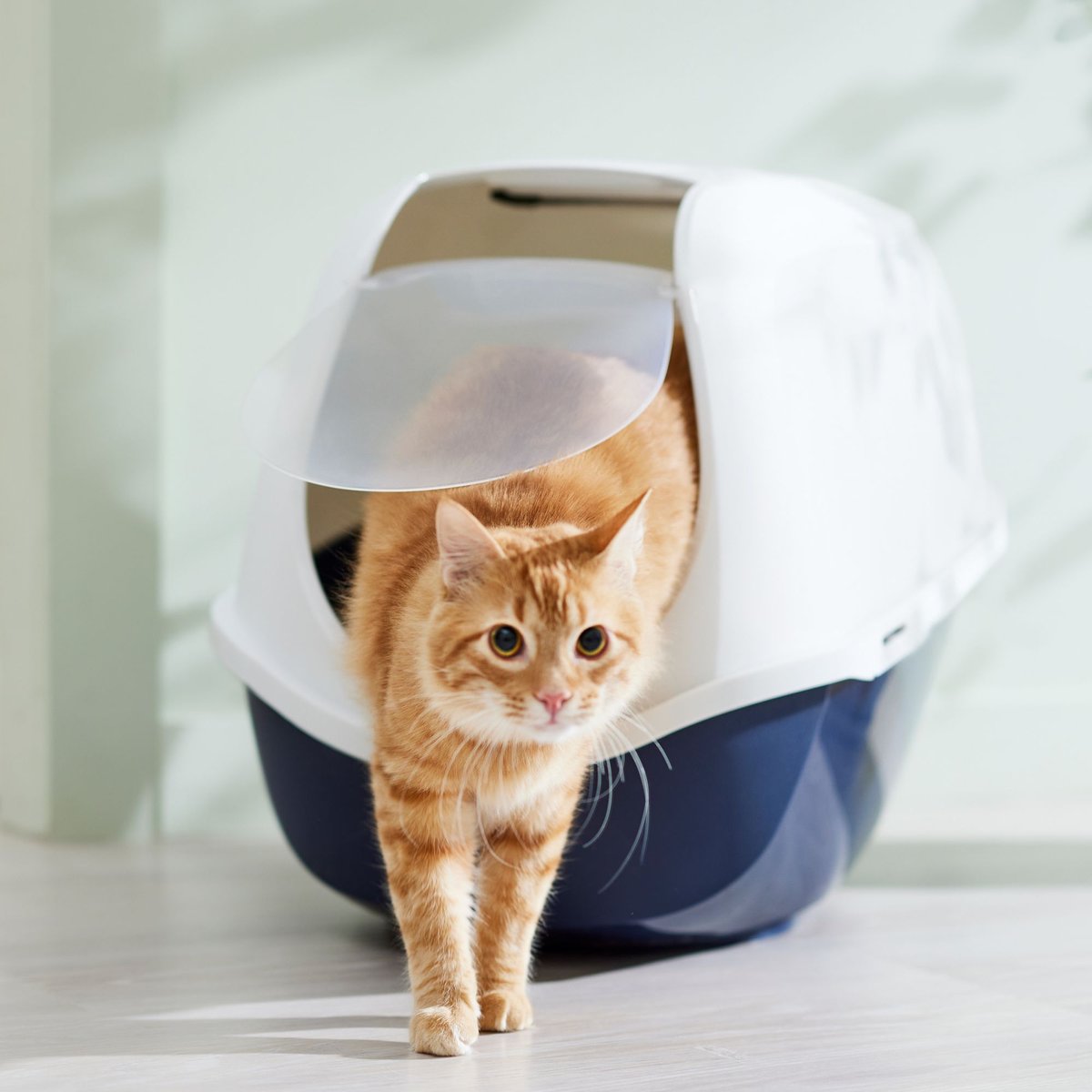
7 Ways to Stop Your Cat from Pooping Outside the Litter Box
Assuming you’ve gone to the veterinarian and have ruled out underlying health conditions as the cause, there are plenty of things you can try to stop your cat from pooping outside the litter box.
"The best way to keep your cat using the box regularly is to set up a box that is appealing to them," says Lusvardi. Here’s how.
1. Move the box to a new location
Put the box in a central part of the home that’s not near noisy appliances, like the washing machine.
2. Get a different size box
If you suspect the litter box is too small, get a bigger one (like the Frisco High Sided Cat Litter Box) to accommodate your cat. They should be able to comfortably turn around to bury their feces.
Some cats prefer open litter boxes to closed ones, so you can try that if you’re currently using a closed litter box.
3. Get a new litter box at least once a year
Litter boxes, especially plastic ones, can trap smells, so regularly swapping out the old box with a new one may help.
This doesn’t apply to investment purchases, like the Litter-Robot, but make sure you’re cleaning regularly to prevent soiling and buildup.
4. Clean the litter box daily
Yes, daily, according to Lusvardi. A cat prefers a clean litter box.
"The box needs to be scooped once or twice a day, every single day," he says.
5. Try a new type of litter
This may require some trial and error, but cats can have preferences for litter.
"Long-haired cats may prefer a non-clumping litter so it doesn't get stuck to their fur," says Lusvardi.
You may also have to experiment with scented and unscented litter. The fragrance in scented litter can be too strong and off-putting to some cats, so it may deter them from using the litter box.
6. Consider a low-entry litter box
If you have an older cat, get a lower-entry litter box (like the KittyGoHere Senior Cat Litter Box) for easy entry and exit.
7. Add more litter boxes
If you have multiple cats (or even if you don’t), adding a second or third litter box may help.
“For some cats, they have a preference for one box to poop in and one to pee in,” says Lusvardi. “Adding a second box right next to the first one will allow them to choose which one to use.”
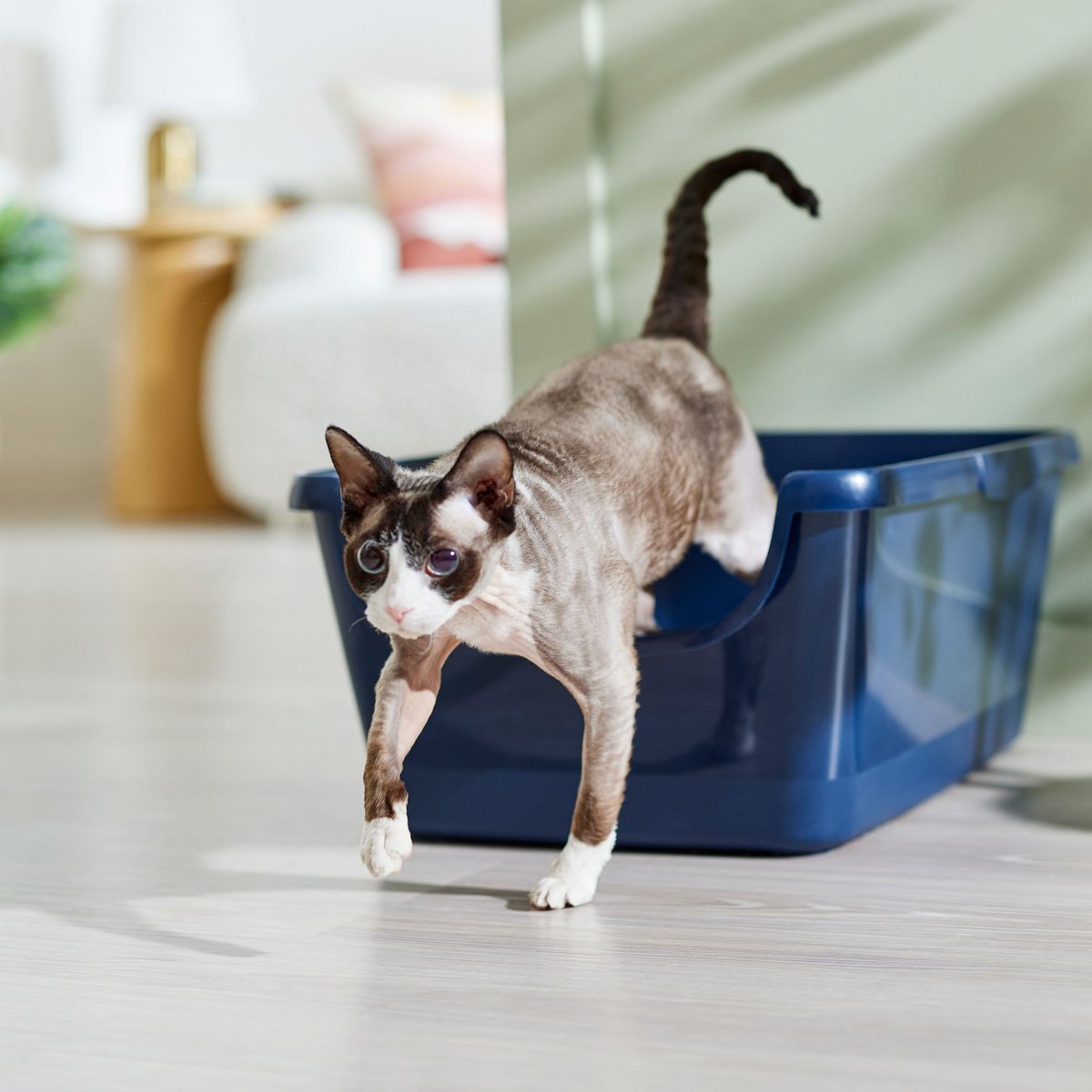
How to Best Clean Accidents from Furniture and Carpets
Always clean up accidents really well. While this is more of an issue with peeing where they’re not supposed to, cats will often relieve themselves in the same area if they can smell the lingering odor.
Use cleaners specifically for pet accidents
“Thankfully, poop is usually easier to clean up than urine,” says Lusvardi. “In many cases, you can just pick it up and wipe the area clean with a cleaning product, so you can focus on figuring out why your cat isn't using the box.”
However, if your furniture or carpet are more soiled, you may need to give it a deeper clean. Lusvardi recommends a non-bleach cleaner.
“If the surface is soft or a fabric material, you really want to soak it in a pet stain-specific cleaner,” he says. “Let the cleaner sit based on the instructions on the bottle. If it's something that can be laundered, you may want to soak it overnight before running it through the washer.”
Deep clean furniture
If things are really bad—like if your cat had diarrhea on a couch—consider replacing the material or inner foam for your furniture, if possible.
Either way, Lusvardi says a few washings can be required, so don’t worry if stains and odor don’t come out the first time.
When to Call a Vet
Since medical issues are one of the most common reasons a cat may be defecating outside of the litter box, Lusvardi recommends calling a vet if the behavior persists for more than a day or two.
At the very least, the vet can help you rule out medical concerns, and start troubleshooting potential litter box issues or behavioral problems.
More about cat poop:
Share:
